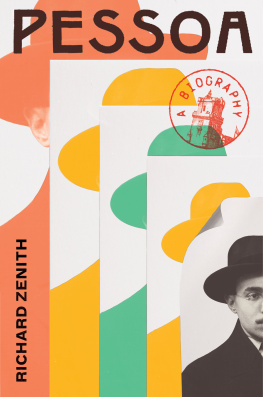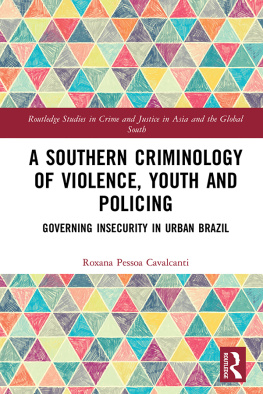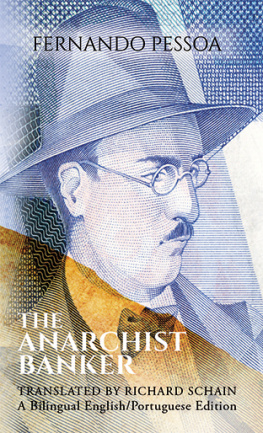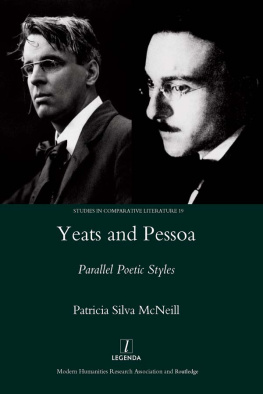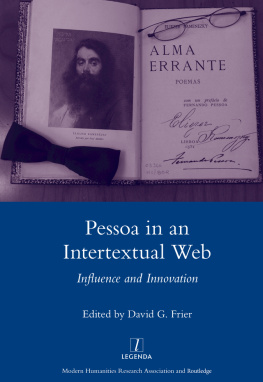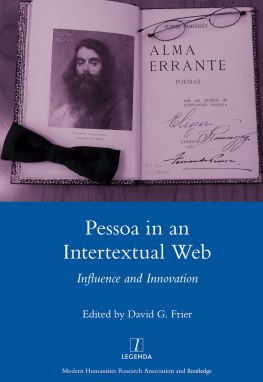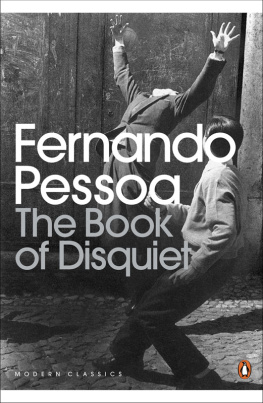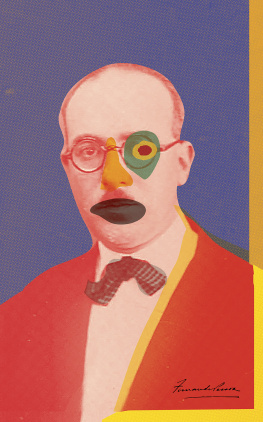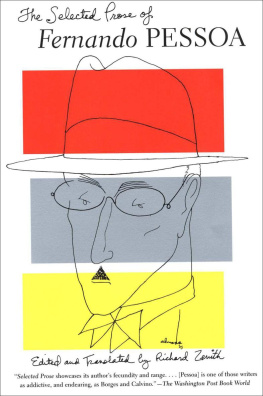Contents
Guide


Courtesy Manuela Nogueira
PESSOA
A Biography
Richard Zenith

Contents
Pessoa created dozens of fictional authors who peopled his written world and even, in a certain way, his very life. Some of them were enduring presences and dubbed heteronyms, while others quickly faded from the scene. This list which the reader can consult as needed includes most of the fictional authors mentioned in the following pages, where their roles and writings are described more fully. A heteronym mentioned in another authors entry is in small caps.
A. L. R.
Known only by his initials, A. L. R. was listed as the translator and commentator of a Portuguese edition of The Protocols of the Elders of Zion , a fraudulent document that purported to show how prominent Jews were plotting to destabilize and dominate the world. The Protocols was one of many books Pessoa hoped to publish at Olisipo, a small publishing house founded in 1921.
Giovanni B. Angioletti
This anti-Fascist Italian critic stole the identity of a real Milan-based literary critic named Giovanni Battista Angioletti (18961961) and exiled himself to Portugal. In an interview published by a Lisbon newspaper in the fall of 1926, he declared that Mussolini was a madman and described some of the deplorable aspects of his regime.
Charles Robert Anon
Active between late 1903 and 1906, this was the first fictional author with an extensive literary output, both in poetry and prose, all in English. The Natal Mercury (Durban) published one of his poems in July 1904 but rejected three sonnets submitted to the newspaper a year later. He accompanied Pessoa back to Lisbon in the fall of 1905.
Dr. Faustino Antunes
This psychiatrist wrote letters in 1907 to at least three people Pessoa had known in Durban, requesting confidential information about the character and behavior of his client (Pessoa), who had developed serious mental problems after leaving South Africa.
W. W. Austin
Austin lived for a time in Australia, where he met K ARL P. E FFIELD , who was working as a miner. Austin sent Effields The Miners Song, along with a cover letter, to The Natal Mercury (Durban).
Raphael Baldaya
Endowed with a long beard and fluent in English as well as Portuguese, this student of astrology and the occult received his first writing assignments toward the end of 1914 or in the beginning of 1915. Pessoa later drew up plans (never realized) to sell Baldaya horoscopes by mail.
Pero Botelho
An author of short stories and letters dating from around 1913.
Alberto Caeiro
Born in Lisbon on April 16, 1889, Alberto Caeiro da Silva lived with a great-aunt in a white house in the country, northeast of Lisbon, and died from tuberculosis in 1915. A poet with little formal education who believed that things are exactly what they seem to be, Caeiro loomed into existence in March 1914 and was immediately recognized by Pessoa as his master. He was also the master of LVARO DE C AMPOS and R ICARDO R EIS . Besides The Keeper of Sheep , which contains forty-nine poems, Caeiro authored a smaller collection, The Shepherd in Love , as well as dozens of miscellaneous poems.
lvaro de Campos
The liveliest, most opinionated, and most prolific of the heteronyms, lvaro de Campos emerged in 1914 some three months after A LBERTO C AEIRO . Born on October 15, 1890, in Tavira, the town in the Algarve where Pessoas paternal relatives were concentrated, Campos studied engineering in Scotland, journeyed to the Far East, lived for a time in London, worked as a naval engineer in northern England, and eventually settled in Lisbon. He was sexually attracted to men as well as women, and complained that no matter how much he saw, felt, and tasted, he needed to see, feel, and taste still more. Besides poetry, he wrote and published provocative prose texts in which he sometimes took issue with the views of Fernando Pessoa.
J. G. Henderson Carr
Carr colluded with T AGUS to help him win the Puzzle Prize. He was slated to author some Essays on Reason, but these never materialized.
Joo Craveiro
An author of political commentary intended for a magazine that Pessoa vaguely thought of launching in 1918.
A. A. Crosse
A competitor in the word games published by various English newspapers.
I. I. Crosse
This English critic wrote favorably about the poetry of A LBERTO C AEIRO and LVARO DE C AMPOS .
Thomas Crosse
Created around 1916, Thomas Crosse wrote essays on Portuguese history, Portuguese literature, and other topics for the English-speaking world. He was also scheduled to translate the Complete Poems of Alberto Caeiro ; although he failed at this task, he did write a few pages for the Translators Preface.
Karl P. Effield
Pessoas first fictional author to write in English and the first to sign a poem published in a real newspaper, The Natal Mercury (Durban), in July 1903. Born in Boston, Massachusetts, Effield traveled to east Asia and Australia.
Horace James Faber
An author of detective stories and an occasional co-author with C HARLES R OBERT A NON in Durban.
Gaveston
Pessoas papers from 1904 to 1910 contain dozens of signatures for this mysterious personagelinked by his creator to Piers Gaveston (12841312), the favorite of Britains King Edward IIbut he signed no literary works.
Vicente Guedes
Conceived in 1909, around the same time as J OAQUIM M OURA- C OSTA and C ARLOS O TTO , Guedes was a poet, short story writer, and translator for the unsuccessful Ibis press, which folded in the summer of 1910. In 1914 Guedes would be designated the author of The Book of Disquiet , a job he held until 1920, when he dropped out of circulation.
Sher Henay
Henays task was to compile and introduce an English-language Sensationist Anthology , conceived in 1916. It was to include work by Pessoa and his sensationist compeers.
William Jinks
A friend of C HARLES R OBERT A NON and a quack promoter of healthy living, he somehow ended up in a London jail, where in April 1905 he wrote a letter in English full of comical misspellings.
Eduardo Lana
Supposedly born in Brazil, in 1875, Lana moved as an adult to Portugal, where he began publishing poetry and prose. A couple of his poems were included in Pessoas homemade newspaper The Tattler in 1902.
Maria Jos
A nineteen-year-old hunchback who suffered from tuberculosis and crippling arthritis, Maria Jos spent her days next to a second-floor window and felt her heart flutter each time Senhor Antnio, a handsome metalworker, passed by on his way to or from work. While she had no intention of sending it, she wrote him a long and poignant letter, dating from 1929 or 1930, in which she described her pathetic existence and her ardent feeling of love.
Friar Maurice
Beset by doubts as to whether God actually exists, this monkwho wrote prose passages for The Book of Friar Maurice was a disquieting presence in the real-world life of Pessoa, according to an autobiographical text dating from 1907.
David Merrick
Invented in 1903, he was tasked with writing a novel, two volumes of short stories, a book of plays, and a poetry collection. His writing tasks floundered or were transferred to others.
Lucas Merrick

